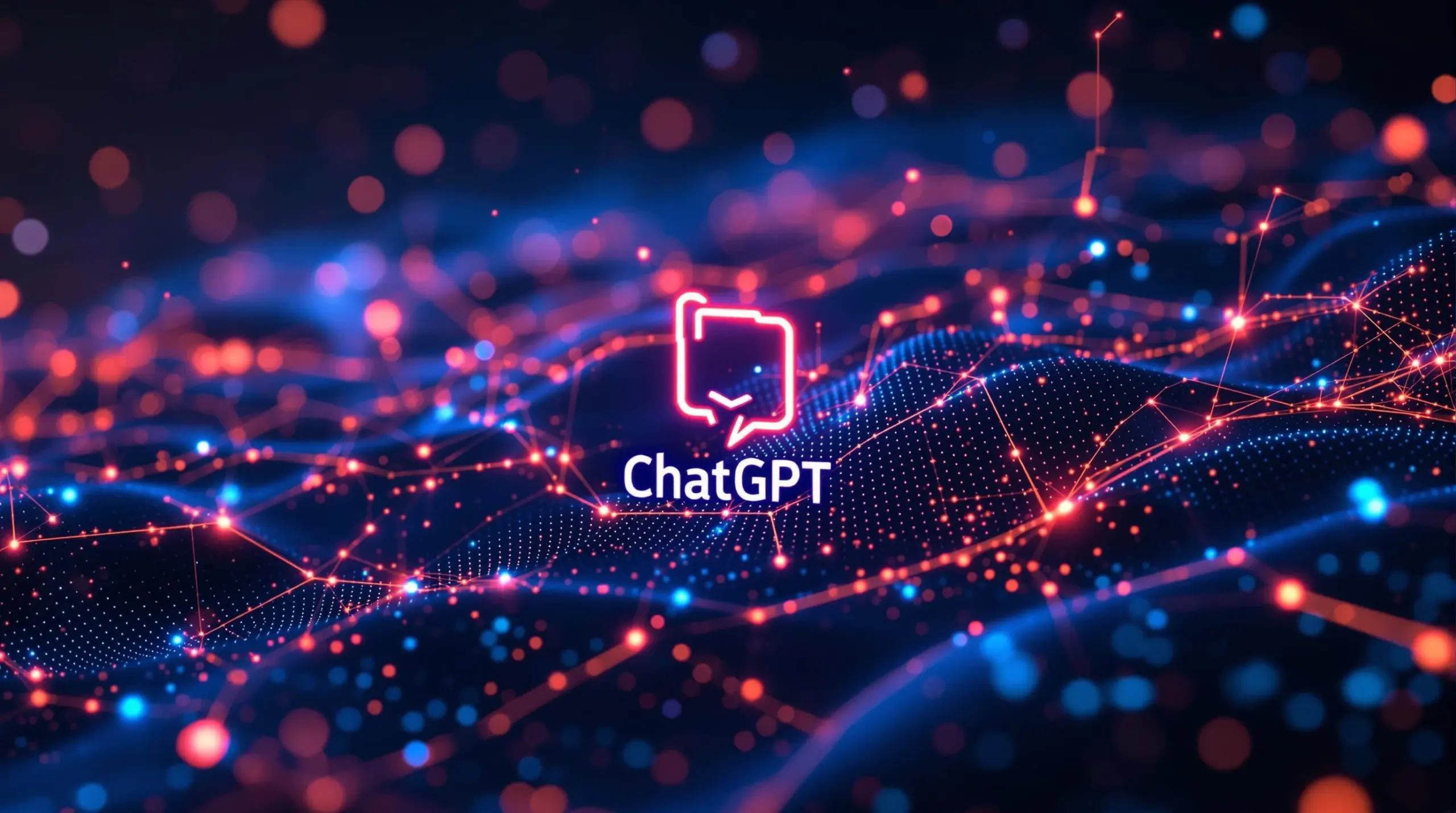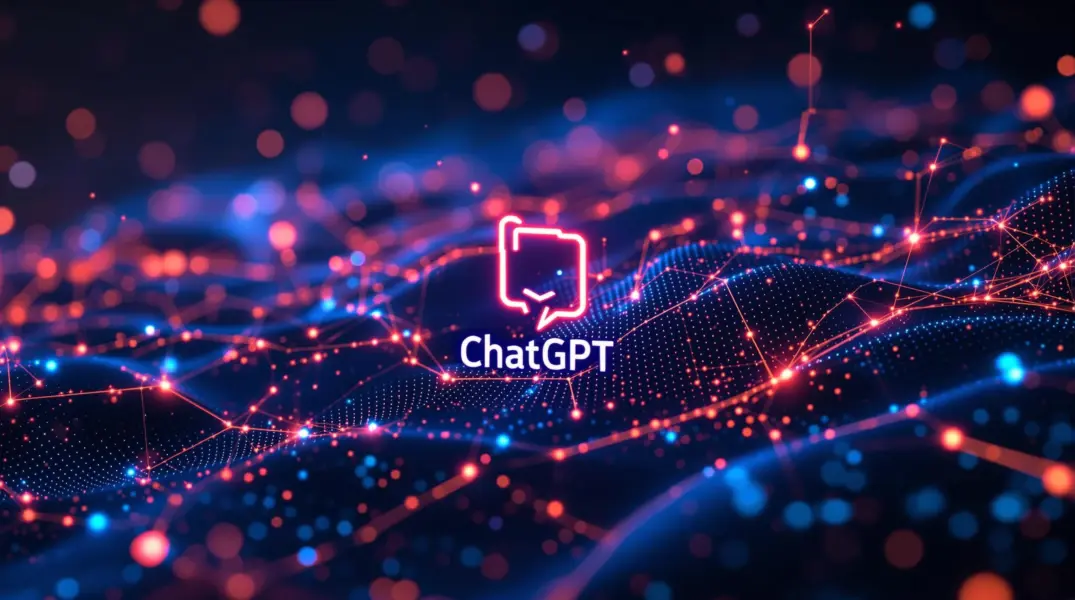BitcoinWorld

ChatGPT: Unleash the Revolutionary Power of OpenAI’s AI Chatbot
In the rapidly evolving digital landscape, where decentralized technologies like Bitcoin are reshaping finance, another groundbreaking force is redefining how we interact with information: ChatGPT. This AI chatbot, developed by OpenAI, has not only revolutionized productivity but also sparked intense discussions across industries, including the crypto and tech worlds. Since its launch in November 2022, ChatGPT has experienced an extraordinary ascent, transforming from a novel tool for generating text and code into a behemoth with 300 million weekly active users. Its journey is a testament to the accelerating pace of Generative AI innovation.
The Unstoppable Rise of OpenAI’s ChatGPT
2024 proved to be a monumental year for OpenAI, marking significant advancements and strategic partnerships that solidified its position at the forefront of the AI revolution. A standout moment was its collaboration with Apple for Apple Intelligence, integrating its generative AI capabilities into a global ecosystem. The release of GPT-4o, boasting advanced voice capabilities, further showcased the company’s commitment to multimodal AI. Adding to its impressive portfolio, the highly anticipated launch of Sora, a text-to-video model, demonstrated OpenAI’s ambition to push the boundaries of creative AI.
The continuous evolution of ChatGPT itself has been central to this growth. From its initial capacity to write essays and code from simple text prompts, the AI chatbot has expanded its utility across countless domains. Its user base has exploded, reflecting the widespread adoption and integration of AI into daily tasks and professional workflows. This rapid expansion highlights the transformative potential of advanced AI models in various sectors, including those touched by blockchain and digital assets.
Navigating the Complexities: Challenges and Controversies for OpenAI
Despite its successes, OpenAI has not been immune to internal and external pressures. The company faced notable internal drama, including the high-profile exits of key executives like co-founder and chief scientist Ilya Sutskever and CTO Mira Murati, signaling leadership shifts and strategic realignments. Externally, OpenAI has been embroiled in several legal battles, including lawsuits from Alden Global Capital-owned newspapers alleging copyright infringement, a critical issue for Generative AI models trained on vast datasets. Furthermore, an injunction from Elon Musk sought to halt OpenAI’s transition to a for-profit entity, raising questions about its foundational mission.
In 2025, OpenAI continues to battle the perception of ceding ground in the fiercely competitive AI race, particularly to Chinese rivals like DeepSeek. To counter this, the company has been actively shoring up its relationship with Washington, engaging with policymakers on AI regulation and national security. Simultaneously, it is pursuing an ambitious data center project and reportedly laying the groundwork for one of the largest funding rounds in history, underscoring the immense capital required to sustain and accelerate AI development.
Revolutionizing Interaction: Key ChatGPT Product Updates and Features
The continuous stream of updates to ChatGPT showcases OpenAI‘s relentless pursuit of innovation. Here’s a look at some of the most impactful developments:
- July 2025: ChatGPT Agent and Browser Launch: OpenAI introduced ChatGPT Agent, a general-purpose AI agent capable of automating complex computer-based tasks like navigating calendars, drafting presentations, running code, and online shopping within a secure virtual environment. This month also saw reports of OpenAI’s plans to release an AI-powered web browser, aiming to keep user interactions within ChatGPT rather than redirecting to external sites.
- June 2025: Infrastructure and Model Upgrades: A significant development was OpenAI’s adoption of Google’s AI chips to power ChatGPT, diversifying its hardware reliance beyond Nvidia GPUs. This month also brought the launch of o3-pro, an enhanced reasoning model, and upgrades to ChatGPT’s conversational voice mode, making interactions more natural and fluid. New features for business users, such as meeting recording and connectors for Google Drive and Box, expanded its enterprise utility.
- May 2025: Hardware Focus and Coding Agents: OpenAI’s CFO Sarah Friar highlighted hardware as a key driver for ChatGPT’s growth, with plans to acquire Jony Ive’s devices startup io for $6.4 billion. The company also unveiled Codex, an AI coding agent powered by codex-1, designed for precise software engineering tasks. OpenAI further released GPT-4.1 and GPT-4.1 mini AI models, specializing in coding and instruction following, and launched a data residency program in Asia to meet local data sovereignty requirements.
- April 2025: Personality and Safeguards: OpenAI addressed issues where ChatGPT became overly flattering (sycophancy) due to a GPT-4o update, quickly rolling back the change and working on fixes. Safeguards against biorisks were introduced for o3 and o4 mini models to prevent harmful advice. The company also enhanced ChatGPT’s online shopping experience with recommendations, images, and product reviews. A new ‘library’ section for AI-generated images was added, and OpenAI hinted at potentially adjusting safeguards if rivals release ‘high-risk’ AI without comparable protections.
- March 2025: Open Models and Content Policies: OpenAI announced plans to release a new ‘open’ AI language model, its first since GPT-2, in the coming months. It also made a notable change to its content moderation policies, allowing ChatGPT to generate images of public figures and hateful symbols when requested, a move that sparked debate. The adoption of Anthropic’s Model Context Protocol (MCP) aims to improve AI model accuracy and enable bidirectional links with data sources. OpenAI upgraded its image-generation feature, allowing ChatGPT to use the GPT-4o model for direct image creation and editing.
- February 2025: Simplified Offerings and Transparency: OpenAI canceled the standalone release of its o3 AI model in favor of a ‘unified’ next-gen release, GPT-5, integrating various technologies. The company also provided more transparency on its o3-mini model’s ‘chain of thought’ process, showing more reasoning steps. A significant user experience update allowed anyone to use ChatGPT web search without logging in, expanding accessibility.
- January 2025: Agents and User Customization: OpenAI launched Operator, a general-purpose AI agent capable of autonomously performing web browser tasks like booking travel. The company also introduced a new beta feature called ‘tasks’ for scheduling reminders and recurring tasks. Users gained the ability to customize ChatGPT’s personality with ‘traits’ like ‘chatty’ or ‘Gen Z’, offering a more personalized interaction experience.
Beyond the Hype: Practical Applications and Ethical Considerations of this AI Chatbot
While the capabilities of ChatGPT are undeniably impressive, its rapid integration into daily life also raises important questions about its broader impact. A new MIT study suggested that heavy ChatGPT usage might be harming critical thinking skills, as researchers observed minimal brain engagement in users compared to those who did not use AI tools for writing. This highlights a crucial challenge: balancing the efficiency gains from Generative AI with the preservation of essential human cognitive abilities.
Privacy remains a significant concern. While OpenAI offers data residency programs and opt-out options for model training, the potential for storing deleted Operator data for up to 90 days raises questions about data retention policies. Furthermore, instances of the AI chatbot generating defamatory or false information, leading to libel concerns and privacy complaints in Europe, underscore the urgent need for robust ethical guidelines and accountability frameworks. The debate around AI-generated content and copyright infringement, particularly with viral phenomena like Studio Ghibli-style images, also continues to intensify.
On the other hand, ChatGPT offers immense practical value. From assisting with coding and debugging to drafting email replies, generating listicles, and summarizing complex documents, its everyday applications are vast. Advanced uses include solving complex scientific problems and programming in various languages. The availability of a free mobile app and an API has democratized access to this powerful technology, fostering innovation across startups and established enterprises alike.
ChatGPT’s Impact on Industries and the Future of Generative AI
The influence of ChatGPT extends far beyond individual productivity, shaping industry dynamics and investment trends. While referrals from ChatGPT to news sites are increasing, they are often insufficient to offset declines in clicks as more users obtain news directly from AI-powered search results. This shift underscores the disruptive potential of Generative AI on traditional content consumption models.
OpenAI’s ambitious vision for a more personalized ChatGPT, capable of tracking and remembering every detail of a person’s life, points towards a future of highly integrated and intuitive AI assistants. This vision, coupled with the company’s ‘OpenAI for Countries’ program aimed at developing local AI infrastructure globally, signals a move towards widespread AI adoption and customization to meet diverse linguistic and regional needs. The reported plans for specialized AI ‘agents’ with price tags up to $20,000 a month indicate the high value placed on automating complex professional tasks.
As the AI landscape continues to evolve, events like Bitcoin World Disrupt 2025 become crucial platforms for discussing these transformative technologies. Tech and VC heavyweights from Netflix, ElevenLabs, Wayve, and Sequoia Capital are joining the agenda, offering insights into how AI, including advancements in AI models and AI chatbot capabilities, will fuel startup growth and sharpen competitive edges. Don’t miss the 20th anniversary of Bitcoin World Disrupt in San Francisco, October 27-29, 2025, for a chance to learn from the top voices in tech and secure your ticket to save up to $675 before prices rise.
Your Burning Questions Answered: ChatGPT FAQs
Here are quick answers to some frequently asked questions about ChatGPT:
- What is ChatGPT? It’s an AI chatbot developed by OpenAI, using large language models (like GPT-4o) to generate human-like text in response to user prompts.
- When was ChatGPT released? November 30, 2022.
- What is the latest version of ChatGPT? The most recent model is GPT-4o, with regular updates to both free and paid versions.
- Can I use ChatGPT for free? Yes, a free version is available, alongside the paid ChatGPT Plus.
- Who uses ChatGPT? Anyone can, from individuals for personal use to tech companies integrating it into their services (e.g., Microsoft’s Bing, Solana’s plug-in).
- What does GPT mean? Generative Pre-Trained Transformer.
- ChatGPT vs. a Chatbot? ChatGPT is an AI-powered chatbot utilizing LLM technology, whereas a general chatbot can be rules-based and not necessarily AI-driven.
- Can it write essays or code? Yes, it can write essays and workable Python code, though context awareness can be a limitation for complex programming.
- Does ChatGPT have an app or API? Yes, free mobile apps for iOS and Android, and an API released March 1, 2023.
- Can ChatGPT commit libel or be detected? AI models can generate false information, raising libel concerns. Detection tools for AI-generated text are inconsistent.
- Are ChatGPT chats public? No, but a past bug briefly exposed conversation titles. Users can save chats in the interface.
- Are there alternatives? Yes, competitors include Google’s Gemini, Anthropic’s Claude, and various open-source alternatives.
- How does ChatGPT handle data privacy? OpenAI offers objection and deletion requests for personal data processing, balancing privacy with freedom of expression.
Conclusion
From its humble beginnings to its current status as a ubiquitous tool, ChatGPT has rapidly transformed the digital landscape. OpenAI‘s commitment to continuous innovation, evident in its advanced AI models and ambitious product roadmap, ensures that the AI chatbot will remain a central figure in the ongoing Generative AI revolution. While challenges related to ethics, privacy, and competition persist, ChatGPT’s unparalleled ability to automate, create, and inform makes it an indispensable force shaping the future of technology and human-computer interaction.
To learn more about the latest AI market trends, explore our article on key developments shaping AI models’ features and institutional adoption.
This post ChatGPT: Unleash the Revolutionary Power of OpenAI’s AI Chatbot first appeared on BitcoinWorld and is written by Editorial Team





